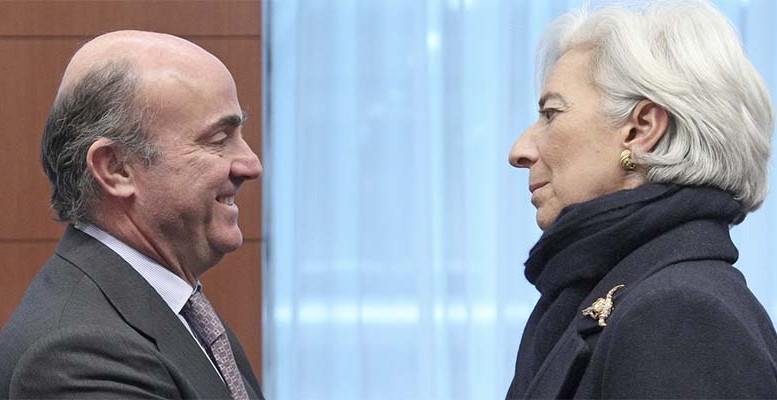The International Monetary Fund (IMF)’s spring forecasts – progressively less optimistic – have nurtured the tragic sense of life (the theory expounded by Spain’s Miguel de Unamuno) or the Spanish art of flagellation. Or at least that is what the media headlines reflected, despite the fact that international observers were incapable of detecting any particularly destructive tone in the Washington-based organisation’s predictions.
The IMF announced it has lowered its estimates for global growth by 2 percentage points from the 3.4% predicted in January to the current 3.2%. For Spain, it has cut its forecasts by 1 percentage point to 2.6% from 2.7%.
The aforementioned press headlines and some rather fatalistic comments were unable to contain a degree of reductionism which not even Economy Minister de Guindos could neutralise – “the IMF has confirmed that Spain is the developed country which is growing the most” – nor the new general secretary of the UGT trade union. He played down the importance of the IMF’s forecasts, while stressing that the main thing is “that Spain has a government.”
If the Spanish media was capable of analysing the information within a context which is complicated and where confidence is a fairly important factor, it would not be so difficult to work out that the IMF still expects the global economy to grow more in 2016 than in 2015.
Furthermore, the organisation has not highlighted any new risks and has even revised its forecasts for China upwards. As far as downward revisions are concerned, there is Japan, its growth forecast slashed by half to 0.5% in 2016, and Brazil, seen slowing -3.8% this year compared with a previous forecast for -3.5%. The US also saw its growth estimates cut to 2.4% from a previous 2.6%. So Spain is in no way faring badly.
Some media decided to buck the trend of “negativity,” providing a more optimistic view. With a forecast GDP of $1.242 trillion, they highlighted that Spain will once again be the second most powerful economy in the world, a position which it will maintain in 2017, after being in 14th place during the last two years.





